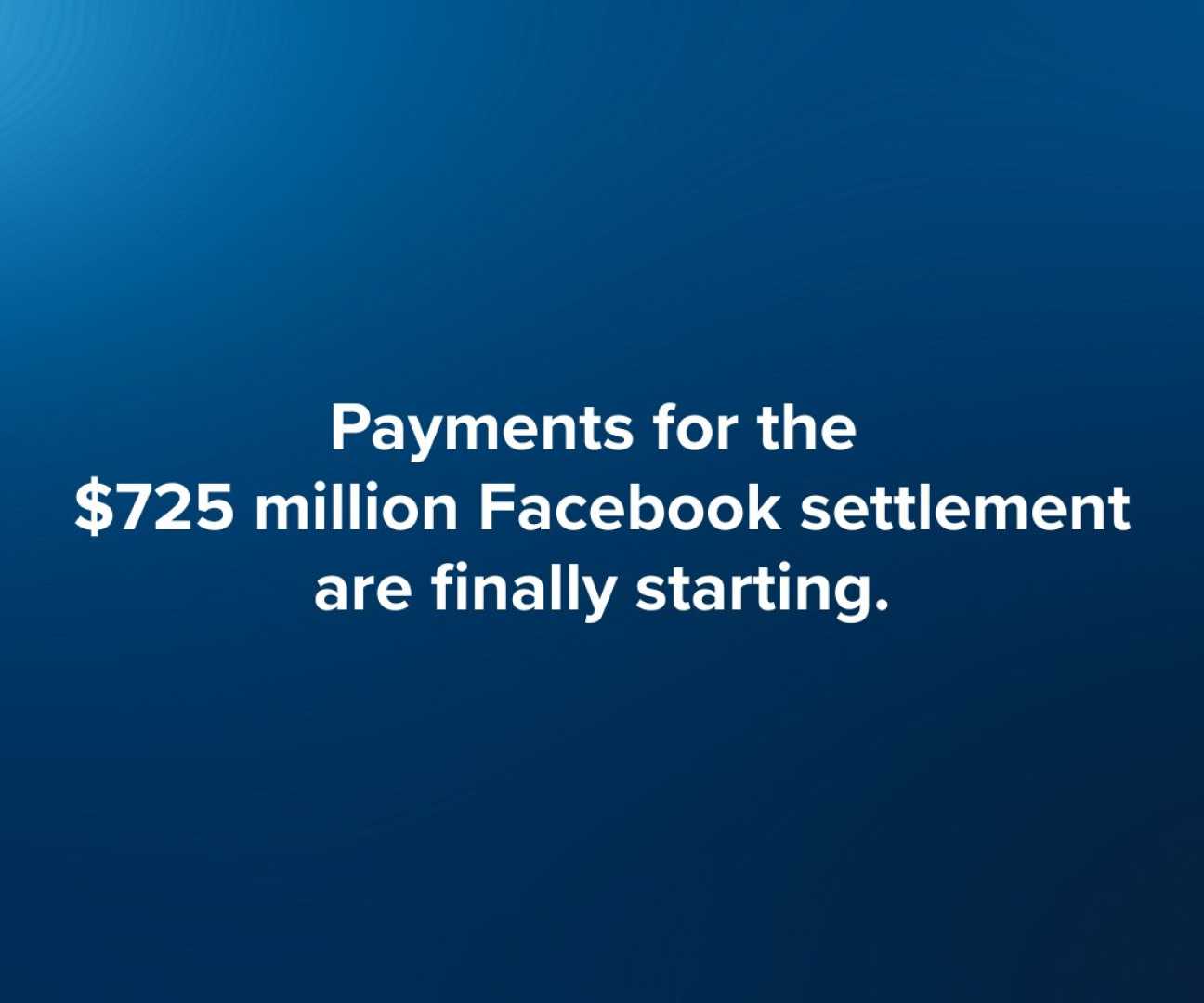Business
Payments Start for Facebook Privacy Settlement; Potential Scams Loom

SAN FRANCISCO, California — The first payments from a $725 million class-action settlement with Facebook are beginning to reach users this week. The payments are part of a case concerning alleged privacy violations linked to the Cambridge Analytica scandal, affecting millions of Facebook users.
Many recipients are seeing direct deposits or notifications from platforms like Venmo and PayPal. One user reported receiving $34.17 as their share, marking an end to a lengthy claims process that started back in 2018. However, while some are celebrating, others are advised to remain cautious as scams targeting settlement recipients may arise.
Since notification emails started rolling out, a behind-the-scenes conflict has emerged between class counsel and settlement administrator Angeion Group regarding undisclosed financial ties with vendors. Despite the controversy, Angeion maintains compliance, stating their agreements are legitimate and reviewed privately by U.S. District Judge Vince Chhabria.
The backbone of the settlement revolves around a lawsuit where Facebook was accused of allowing third parties, including Cambridge Analytica, to access users’ data without consent. Meta, Facebook’s parent company, agreed to the payout without admitting guilt, choosing to settle the matter earlier this year.
As of now, 19 million claims have been approved, with most payments ranging from $4.89 to $38.36. The anticipated payout amount remains lower than the total settlement due to legal fees and the number of claims filed. Approximately 6% of eligible members successfully filed claims, which compares favorably to other class-action cases.
With the average payout hovering around $30, many claimants are expressing disappointment, highlighting the challenges of distributing funds among a massive group. This distribution process is set to continue over the next ten weeks.
As payment notifications circulate, users must stay vigilant against scams. Legitimate emails will only originate from designated addresses, and recipients should avoid sharing personal information. Judge Chhabria, concerned over administrator transparency, may yet implement new measures in future cases.
The distribution of the settlement funds reflects a significant moment not only for privacy rights but also as a warning to technology companies about the importance of user data protection. The money being sent out now is proof that collective action in the digital age can yield results.
For users who need information on their payment status or method, it is recommended to check the email used for the claim regularly and monitor the selected payout method. As the distribution continues, many questions remain about the process and how best to handle the payments received.












